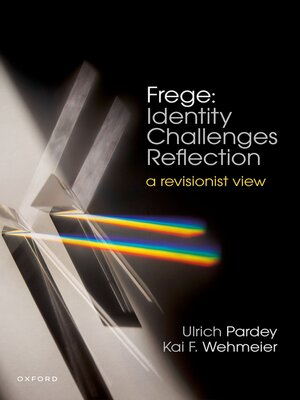
Sign up to save your library
With an OverDrive account, you can save your favorite libraries for at-a-glance information about availability. Find out more about OverDrive accounts.
Find this title in Libby, the library reading app by OverDrive.



Search for a digital library with this title
Title found at these libraries:
| Library Name | Distance |
|---|---|
| Loading... |
The received view of identity takes it to be a binary relation between objects like many others: specifically, identity is thought to be the binary relation every object bears to itself and to no others. As such, it is supposed to play a fundamental role in our conceptual scheme. It is also widely held that Gottlob Frege (1848-1925), after a false start in his Begriffsschrift of 1879, where he proposed that identity is a relation between signs, eventually came round to the now mainstream view, the first paragraph of his celebrated 1892 essay "On Sense and Reference" marking the transition. In Frege: Identity Challenges Reflection, Ulrich Pardey and Kai F. Wehmeier show that common wisdom is mistaken on both counts. First, careful exegesis shows that Frege did not repudiate the earlier, sign-based conception of identity in his 1892 essay, but instead defended it; moreover, that conception is in no way refuted by the collection of formal and philosophical objections that have been raised against it in subsequent decades. In particular, the Begriffsschrift theory of identity, far from being incompatible with quantification over objects, in fact affords an elegant, ontologically conservative integration of identity into predicate logic. Second, Pardey and Wehmeier argue that our conceptual scheme is not at all committed to a binary relation that every object bears to itself and only itself. Moreover, the tension between the alleged binarity of the identity relation and the logical impossibility of its ever relating two things, famously pointed out by Wittgenstein in the Tractatus, forms the basis of an argument for the logical incoherence of such a relation.







